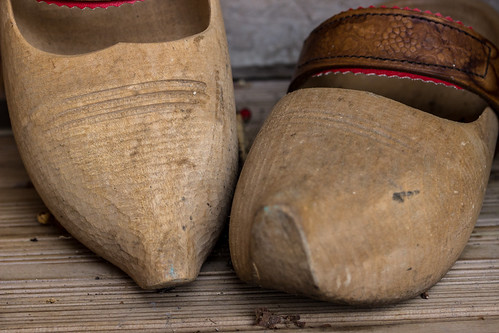sabot /SA-boh/. noun. A wooden shoe or clog. A sleeve that holds and guides a projectile through a rifle tube. In baccarat, the box or shoe for dealing cards. In Australia, a small, snub-nosed dinghy. From Old French çabot, a blend of çavate (old shoe) and bote (boot).
The word sabotage is derived from sabot, though the popular folk etymology that saboteurs threw their wooden shoes into the machinery like the proverbial monkey-wrench is sadly unlikely. More prosaically, sabotage comes from the general sense of the term used in French for doing things badly, particularly performing music, which would be likened to the sound of wooden shoes clomping across the floor.
“They were in the forest, as on the day before, in a hut used by sabot makers. Its walls were of straw, and its roof came down so low that one had to stoop. They sat close together, on a bed of dry leaves.” (Gustave Flaubert)
“I drank greedily, determined to chuck a monkey wrench or hurl a sabot into the entertainers’ works and to have a good time in the bargain…” (Gilbert Sorrentino)
“The inside of the flintlock had been replaced with newer technology and contained a magazine of real bullets complete with sabot and primer caps, cleverly hidden in the stock, and a rifled barrel.” (John C. Wright)




